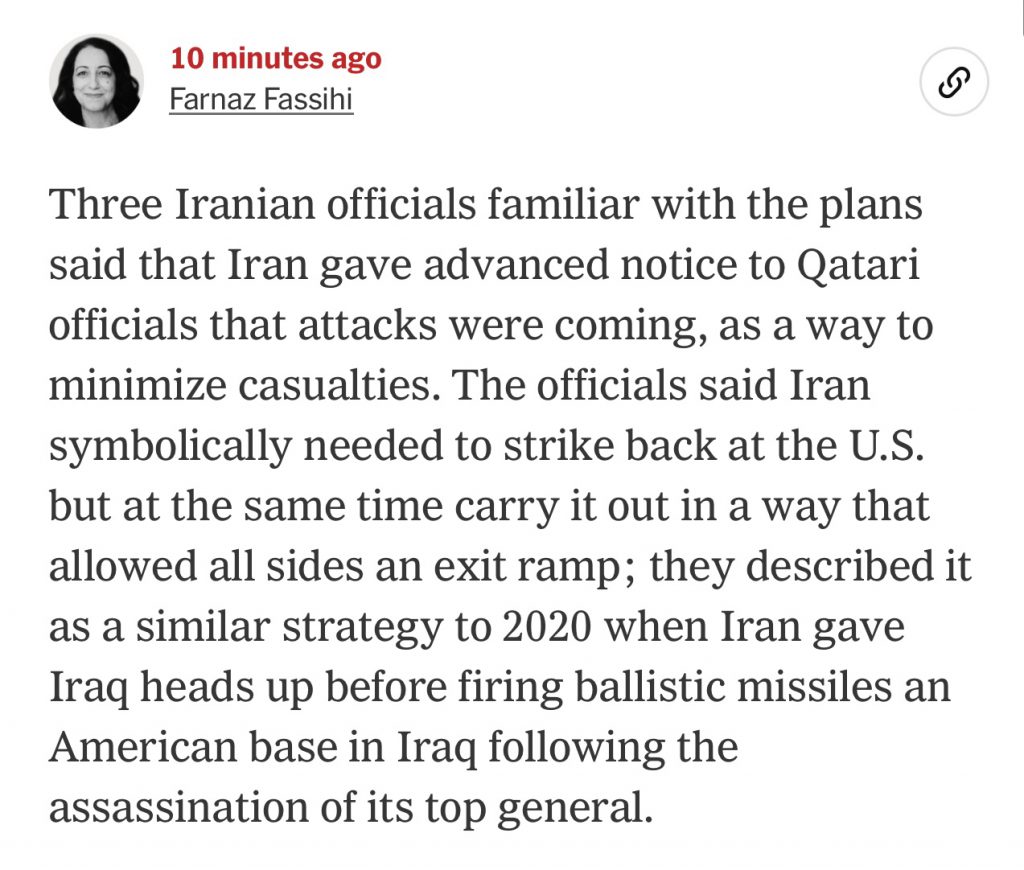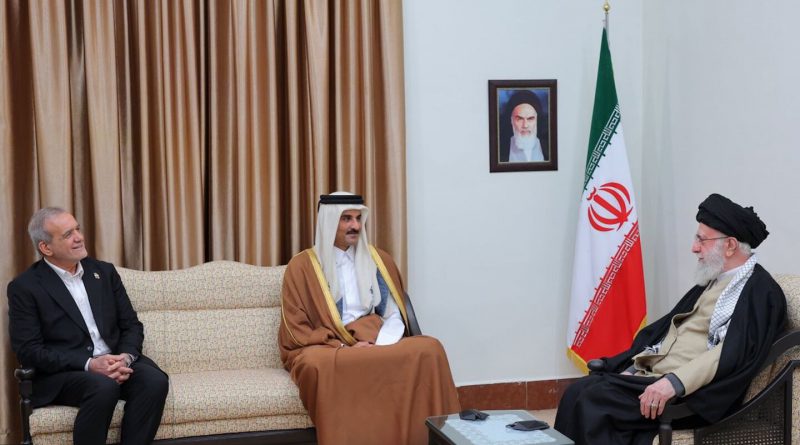Iran Gave Qatar Advance Warning Before Attacking U.S. Base: NY Times
Doha — The New York Times reported that Tehran gave prior warning to Qatari officials about the attack, a move aimed at minimizing casualties and preventing the situation from spiraling into full-blown conflict.
According to three senior Iranian officials familiar with the planning, the strike was meant to send a symbolic message rather than inflict damage or provoke a direct U.S. retaliation.
Iran launched ballistic missiles at U.S. military bases in Qatar on Monday night, triggering explosions near the capital city, Doha. The attack prompted the United States to issue a shelter-in-place order for its personnel, while Qatar shut down its airspace, suspending all civilian flights amid fears of further escalation.
Up to 10,000 U.S. troops are stationed at Al Udeid Air Base, the largest American military facility in the Middle East and the primary target of Iran’s missile barrage.

The officials compared the move to Iran’s 2020 retaliatory missile strike in Iraq, following the assassination of General Qassem Soleimani, in which Tehran gave advance notice to Baghdad — allowing U.S. troops to take shelter before the strike.
Adding to the intrigue, renowned AI researcher and geopolitical commentator Dr. Eli David accurately predicted the nature of Iran’s move hours before the attack.
He posted: “Iran will fire missiles on an empty U.S. base in Qatar, after pre-approving the exact time and location of the attack with the U.S., to prevent any American injury. It will then declare victory for its ‘strong response’.”
His forecast underscores a growing view among analysts that Iran’s retaliatory posturing is highly choreographed, designed more for domestic consumption and regional signaling than actual battlefield effect.
The missile strikes — reportedly hitting unoccupied sections of Al Udeid — caused no confirmed injuries, though the Pentagon has yet to release a full casualty assessment. Qatar, which hosts the base and maintains a balancing act between the U.S. and Iran, has not publicly commented on the advance warning or the aftermath of the strike.
Diplomatic channels are reportedly active behind the scenes, with both Washington and Tehran expected to weigh next steps cautiously. As regional tensions boil over, Gulf states are growing increasingly anxious about being pulled into a broader confrontation they did not initiate.
With the airspace still closed and emergency protocols in effect across U.S. facilities, the world watches to see whether Washington will treat this as provocation or performance.



